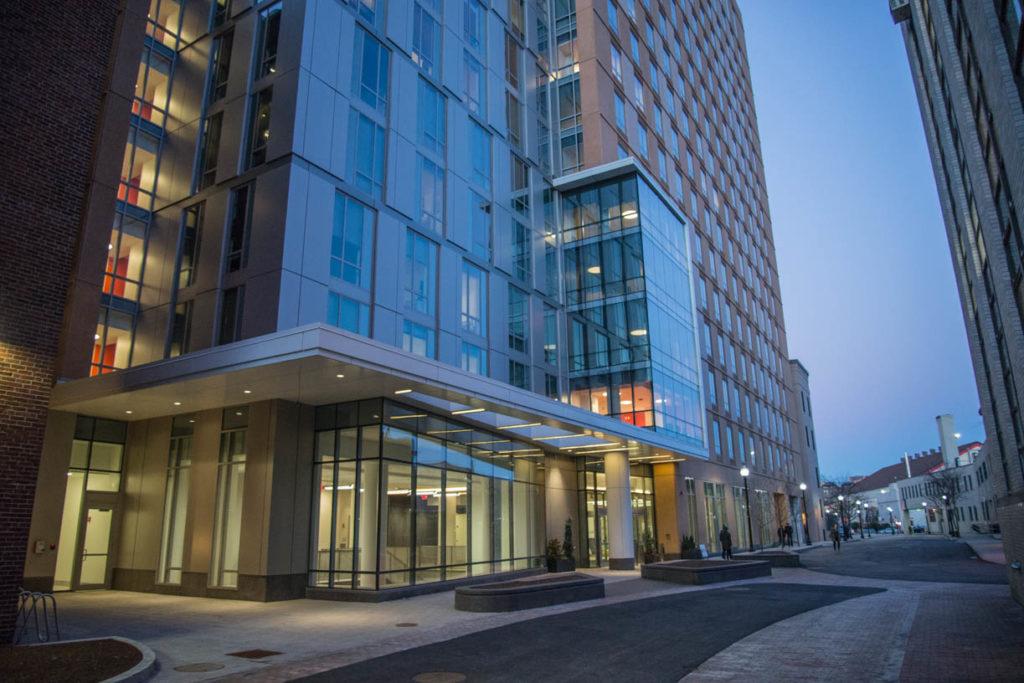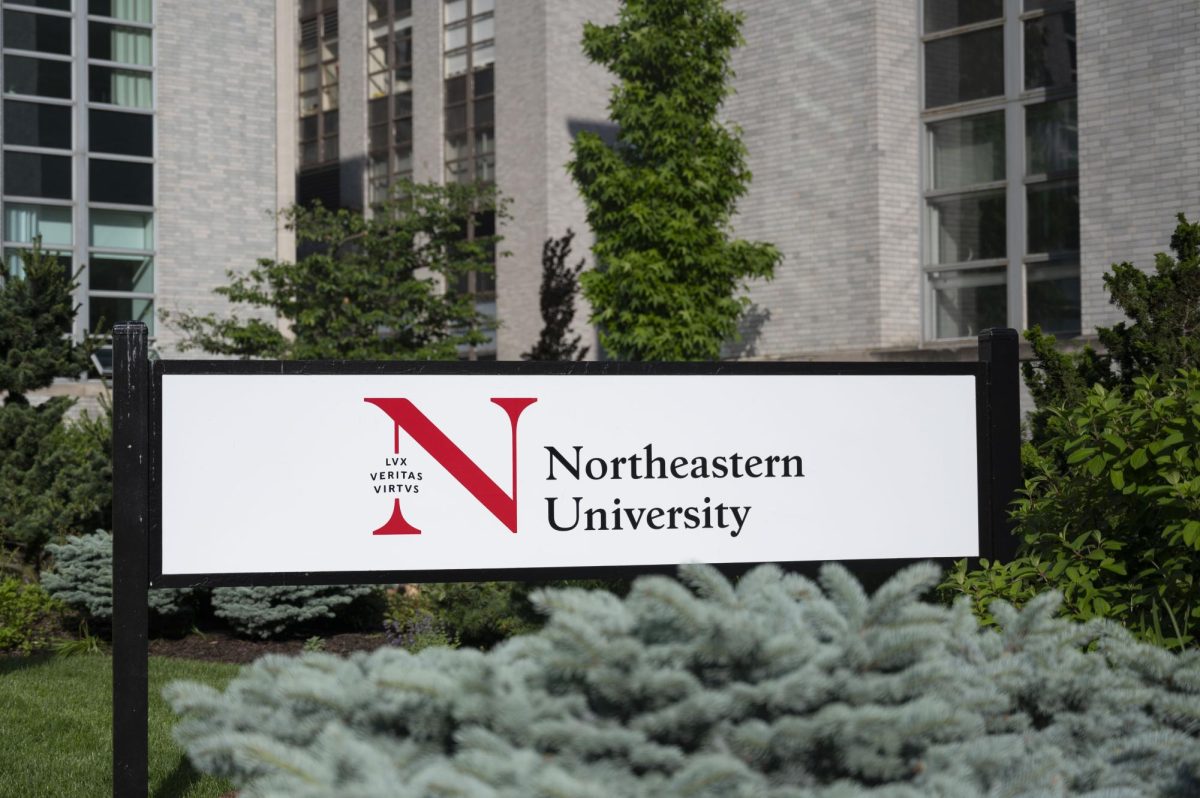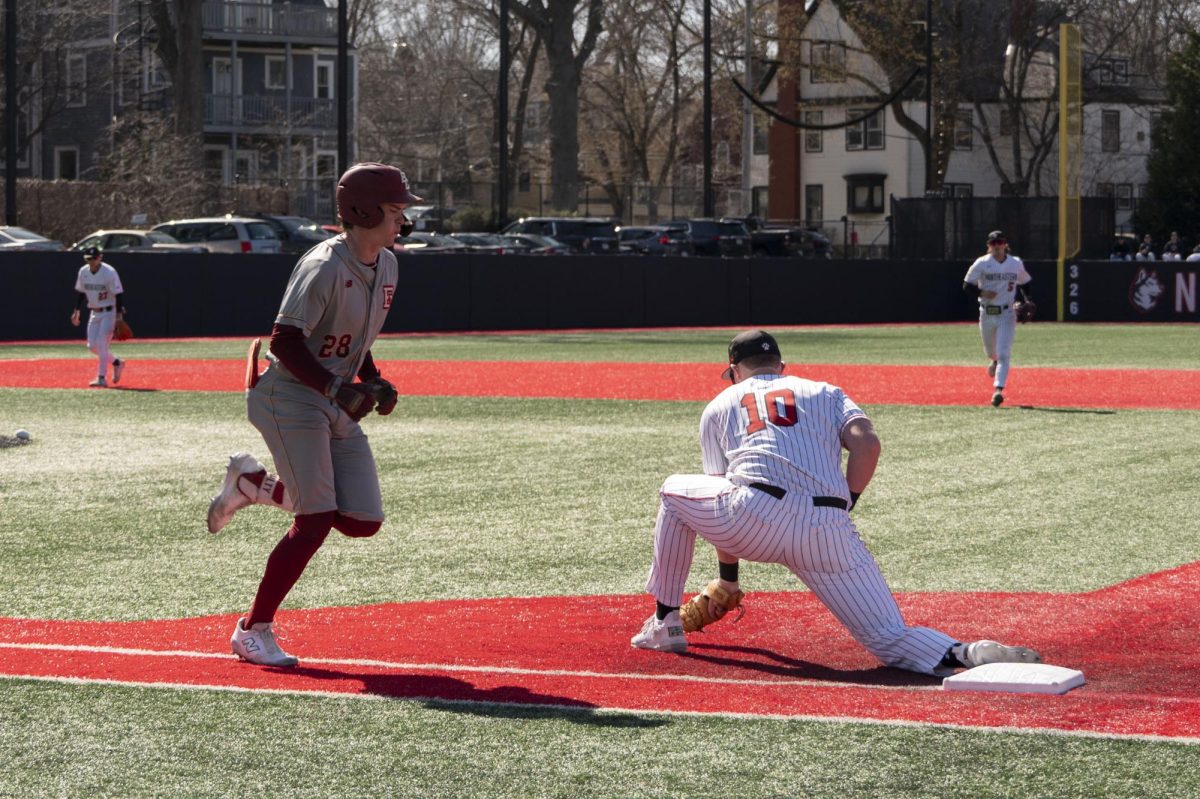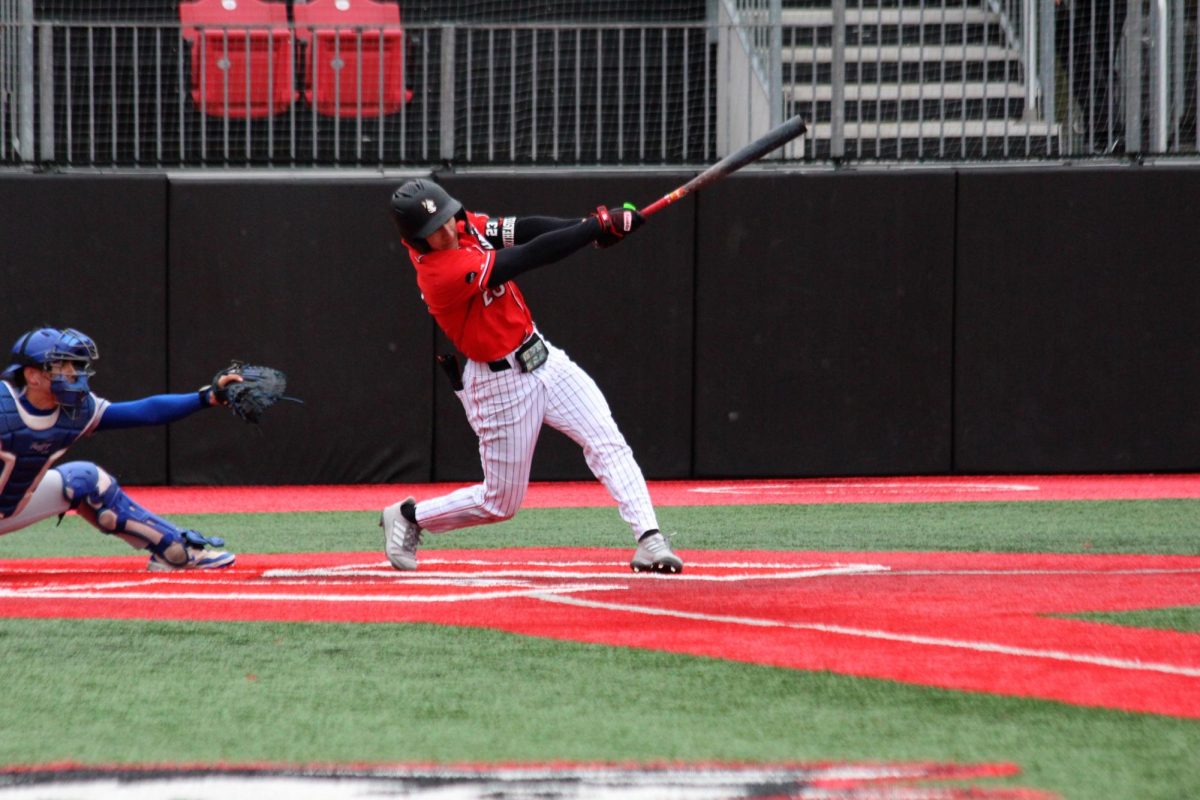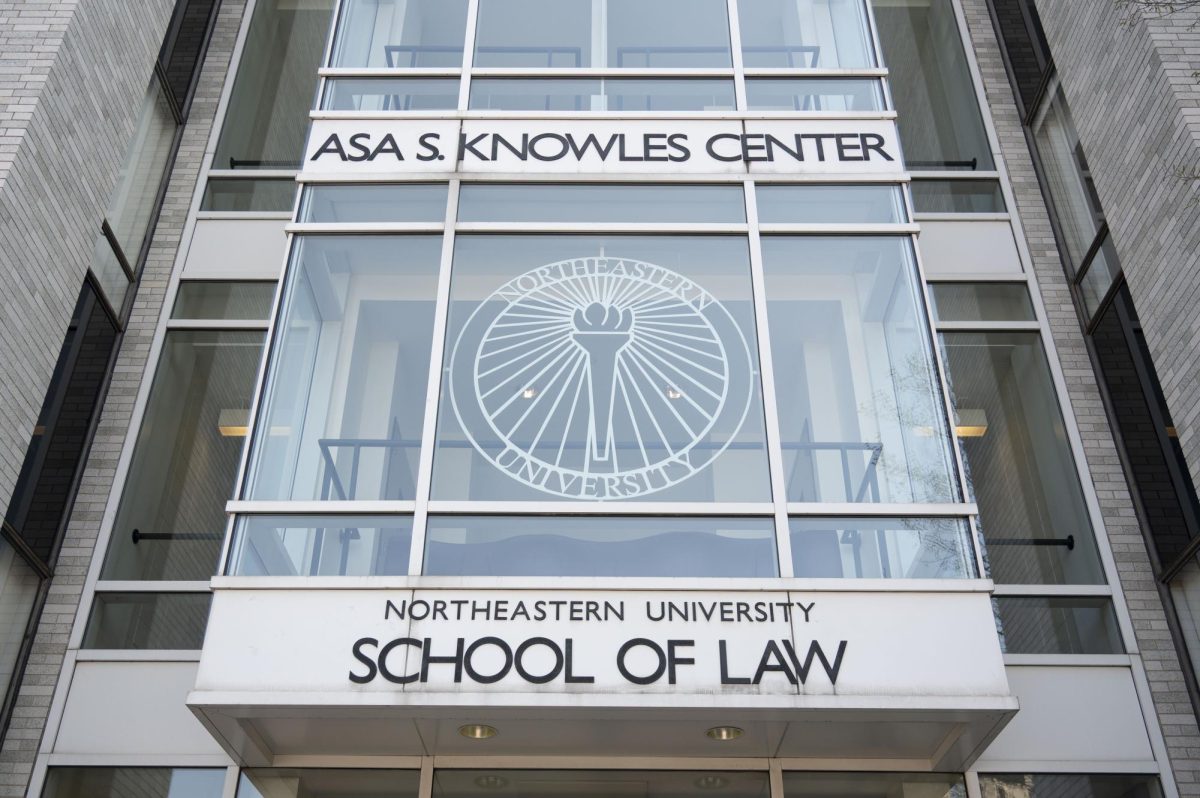Faculty-in-residence program allows students and professors to live side-by-side
East Village is one of the residence halls that hosts the program.
October 11, 2019
They teach your classes, grade your work and live in the same dorm as you. Who are they? The faculty of Northeastern.
Northeastern’s Faculty in Residence program was started to create a new kind of community at Northeastern that involved students and faculty members. Designed to “pick up where the classroom leaves off,” as described on the program’s website, the program lets faculty members live in residential halls for at least three years. The faculty host programs, interact with students and immerse themselves in college culture.
Faculty members selected to participate in the program are given a two-bedroom apartment for themselves and their family members in East Village or International Village (IV). They are also provided with a meal plan of 19 swipes per week and 120 Husky Dollars per regular semester and 60 husky dollars per summer session.
Shan Mohammed, a clinical professor of health sciences, has been living in IV for five years. He said he believes the program is a life-changing experience for faculty interested in teaching outside of the classroom.
“It’s really this mix of getting to know students in a deeper way and knowing that it will change the way I teach. I’d like to believe it wasn’t that long ago I was in college, but the context is different,” Mohammed said.
The experience is different for each faculty member but for the most part, the interest in learning more about college students and a new experience is what drives most professors to become a part of the immersive experience.
“Everybody has a different motivation for why they want to do this. I think for some people, they may be young and just coming to Boston, they’re committed to teaching and looking to do this for a few years to settle down,” Mohammed said. “I think for other people, whatever phase they are in their life, it makes sense. They want to be challenged by this experience and they want to contribute in this new way and I think that was it for me.”
As part of the program, chosen faculty members host programs in their residential halls, collaborate with resident assistants on event planning and organize other informal interactions with students.
Marilyn Minus, a professor of mechanical and industrial engineering, said hosting events in IV has helped her get to know students.
“I have a signature program that I do in the fall where I make pies with the students. In this program, we bake 80 to 100 pies,” Minus said. “I usually do it on a Sunday afternoon when [students] are at home studying or chilling and just want some pie. Who doesn’t want pie?”
Through programs like this, faculty members cultivate informal relationships with students that can be harder to create in classroom settings.
“I didn’t expect so many students to be interested. I usually get over 100 students in and out of my apartment during that day and every inch of my apartment is covered in a body,” Minus said. “I have bean bags and rugs. People are so comfortable just chilling out.”
Michael Hoppman, a professor of communication studies, has been living in East Village for the past four years. He held a presidential debate watch party with another Faculty in Residence professor, Thomas Vicino.
“Tom and I cooperated on a debate watch event that drew about 200 people … Tom, who is a political scientist, did a political analysis, and I am a rhetorician, so I did a rhetorical analysis,” Hoppman said.
The faculty rely on RAs and students to help them focus programs around students’ interests. Scott Benerofe, a recent graduate from the College of Engineering and former resident of IV, collaborated with Mohammed on a program about goal planning.
Benerofe said he had the idea for this when he talked about hiking the Vermont Long Trail and wanted to start a program to engage with his fellow students.
“It was focused around chasing large goals,” Benerofe said. “I had wanted to do the Appalachian Trail one day … I ended up talking to Shan about doing a program centered around that. I put a little presentation together about my planning and prep and the trail and what I have learned.”
With Mohammed’s guidance, Benerofe was able to do the presentation and build a long-lasting relationship as well.
“There’s that distance, right? Shan isn’t in my college. I am engineering and he’s health science,” Benerofe said. “That distance kind of helped because it was not really an academic relationship but more of making friends with your neighbors.”
As for the applications process, the position is popular among faculty and requires them to understand not just that they are living on a college campus, but the more demanding ways in which they engage with students.
“It’s open to just about all full-time faculty … if they are interested and if they are qualified. This has been, in the past, quite a competitive application because there are very few faculty-in-residence … I think the main purpose of the application process is to show that you are a good fit,” Hoppman said. “They need to engage on all the same levels and that’s a mighty hard thing to show.”
For the faculty who are already a part of the program, they say prospective applicants have to be excited to change things up and open themselves up to a very new culture that they have not been exposed to.
“Personally, I would say that if you really love student interactions and developing those relationships, you’re going to love it, but there is that adjustment period of life. Students see you as faculty. You’re in the classroom, you’re giving them grades,” Minus said. “There is this formal relationship, and now you’re moving to this place where this is a little bit informal. They’re seeing you in your pajamas or getting your laundry or your hair isn’t perfect.”
Although the program usually lasts three to five years for faculty members, the experiences they have exceed time.
“What I’ve witnessed through these five years, and my own reflection of my college experience, is a tremendous time of growth and opportunity college present,” Mohammed said. “For me, being faculty in-residence is an exciting time for me to be a part of many students’ journeys.”


